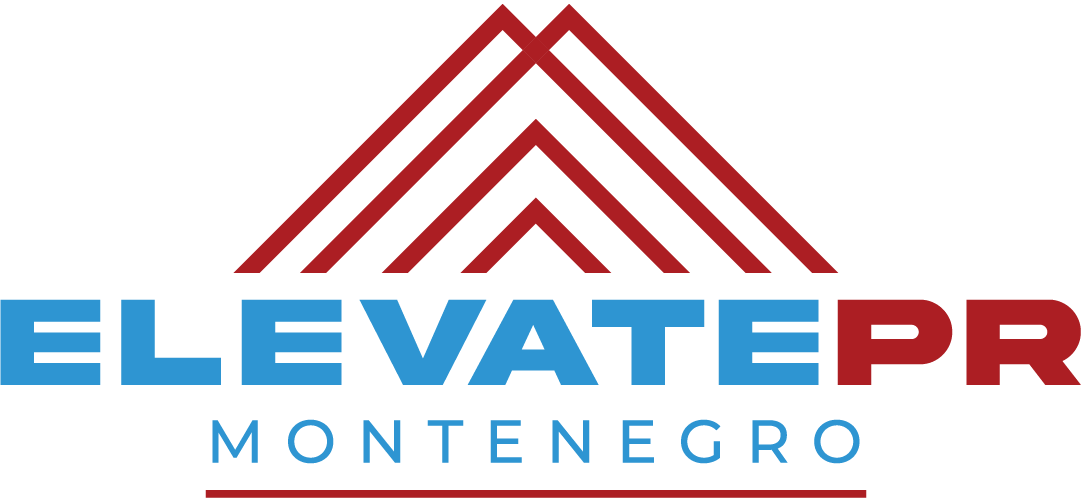Montenegro, a small yet vibrant country on the Adriatic coast, is positioning itself as a strategic gateway into the European market. Its advantageous geographical location, favorable investment climate and efforts toward European Union integration make it an appealing destination for businesses and investors. As Montenegro enhances its infrastructure and aligns its regulations with EU standards, it offers valuable opportunities for companies seeking a foothold in Europe.
Elevatepr.me explores Montenegro’s strategic advantages, its potential as a business hub and the opportunities available for regional and international companies looking to expand their presence in Europe.
1. Strategic advantages of Montenegro as a business hub
1.1 Geographical proximity and strategic location
Montenegro’s location at the crossroads of Western Europe, the Balkans, and the Mediterranean makes it an ideal hub for businesses targeting diverse regional markets:
- Access to major European markets: Montenegro’s central position provides easy access to Western and Eastern Europe, with short travel times to major cities like Rome, Vienna, Belgrade, and Istanbul, facilitating trade and logistics.
- Port facilities and maritime access: Coastal cities like Bar and Kotor are vital ports for maritime trade, enhancing commerce with Italy, Croatia, Greece and beyond.
- Growing air connectivity: With international airports in Podgorica and Tivat, Montenegro is increasingly accessible to business travelers and logistics operations.
1.2 Business-friendly environment and investment incentives
Montenegro’s competitive tax regime and investor-friendly policies make it an attractive destination for companies:
- Low tax rates: The corporate income tax rate is 9%, one of the lowest in Europe, while personal income tax rates range from 9% to 11%, appealing to both businesses and HNWIs.
- Free trade zones: Several free trade zones, such as the Port of Bar Free Trade Zone, offer tax exemptions and benefits for companies in manufacturing and logistics, ideal for importing and re-exporting goods.
- Ease of Doing Business: Simplified business registration and licensing procedures have improved Montenegro’s ranking on the World Bank’s Ease of Doing Business Index.
1.3 Access to the European market and EU integration
Montenegro is making significant strides toward EU integration, which enhances its attractiveness for businesses:
- EU Accession: As a candidate for EU membership, Montenegro has opened several chapters in negotiations. Future membership will grant access to the EU’s single market of over 450 million consumers.
- Regulatory Alignment: Ongoing efforts to align with EU standards create a stable business environment for international companies.
1.4 Stable economic and political environment
Montenegro’s political stability and economic growth foster a conducive environment for business:
- Currency stability: The euro serves as Montenegro’s de facto currency, providing monetary stability and reducing exchange rate risks.
- Political stability: A government focused on attracting foreign direct investment contributes to a stable political landscape.
2. Potential sectors for investment and expansion
2.1 Logistics and distribution hub
Montenegro’s strategic location and infrastructure make it a prime logistics and distribution center:
- Regional distribution center: Companies can leverage Montenegro’s proximity to key markets in the Balkans and Central Europe for cost-effective importing and re-exporting.
- Transport infrastructure: Improved road and maritime transport facilities enhance logistics capabilities for shipping and supply chain management.
2.2 Tourism and hospitality
Montenegro is rapidly developing into a premier tourism destination:
- Luxury tourism development: Investment in high-end resorts and tourist infrastructure positions Montenegro as a sought-after luxury destination.
- Year-round tourism potential: Beyond coastal tourism, opportunities exist in mountain resorts and eco-tourism projects.
2.3 Financial services and banking
The growing financial sector offers various opportunities:
- Banking and financial services: As the financial sector expands, there are prospects for banks and investment firms to serve local and regional clients.
- Wealth management: The influx of HNWIs creates demand for private banking and investment advisory services.
2.4 Real estate and construction
The real estate market, particularly in coastal areas, has seen significant growth:
- Luxury real estate development: There is a rising demand for high-end residential and commercial properties, especially in cities like Budva and Tivat.
- Commercial projects: Increased business activity drives demand for commercial and mixed-use developments.
2.5 Energy and renewable resources
Montenegro’s potential in the energy sector, especially renewable energy, is substantial:
- Hydropower and solar energy: Opportunities exist for investment in renewable projects, supported by Montenegro’s natural resources and commitment to sustainability.
- Energy infrastructure: Modernizing energy infrastructure offers potential for companies specializing in energy technology and services.
3. Challenges and considerations
While Montenegro offers numerous advantages, businesses should consider some challenges:
- Small domestic market: With a population of about 620,000, businesses may need to target regional or international markets.
- Infrastructure development needs: Continued investment in transport and logistics infrastructure is necessary to support business ambitions.
- Regulatory hurdles: Navigating local regulations can be complex, so partnering with local experts is advisable.
4. Strategic recommendations
- Establish regional headquarters: Companies should consider setting up regional HQs or distribution centers in Montenegro’s free trade zones to tap into Southern Europe’s markets.
- Invest in growth sectors: Focus on sectors like tourism, real estate, renewable energy, and financial services to leverage Montenegro’s favorable investment climate.
- Prepare for EU market access: Positioning for future EU membership can provide a competitive edge as Montenegro integrates further with the EU market.
- Leverage local partnerships: Collaborating with local firms can ease regulatory challenges and enhance market presence.
Montenegro’s strategic location, business-friendly environment, and ongoing EU integration present an attractive proposition for companies looking to expand into Europe. With its growing infrastructure and investment incentives, Montenegro is set to become a key gateway for businesses aiming to access broader European markets. By understanding its unique advantages and addressing potential challenges, companies can successfully establish a presence in one of Europe’s most promising emerging markets.
Elevated by


